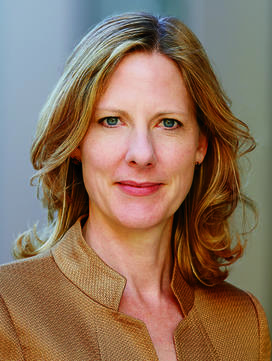Heather Gerken ’91, a Leader in Constitutional Law, Prepares for New Role

“I think this is the best job to have right now. That is in part because this is the best law school in the world. And that is in part because we’re in a moment when law schools are particularly important and when lawyers are particularly important,” Gerken says.
Gerken, who serves as a Princeton University trustee, credits Princeton with spurring her interest in becoming an academic. “No one in my family is an academic, and Princeton opened my eyes to the fact that you can have a career focused on ideas,” she says.
After graduating summa cum laude with a concentration in history, Gerken won the prestigious Darrow Scholarship to attend the University of Michigan Law School. She then clerked for Judge Stephen Reinhardt of the Ninth Circuit and Justice David Souter of the United States Supreme Court. She remained in D.C. for nearly four years as an appellate lawyer at Jenner & Block.
While at Jenner & Block, Gerken rekindled her love of academia. A paper inspired by a debate she had with one of the firm’s partners ended up in the Harvard Law Review.
That article, “Understanding the Right to an Undiluted Vote,” launched her career as a constitutional law professor at Harvard Law School in 2000. Gerken then joined the faculty of Yale Law School in 2006, where she founded the “nationalist school of federalism” — a school of thought that believes in state power as a means to achieve a well-functioning national democracy.
Gerken’s award-winning career as an academic is not divorced from her work as a practitioner. She founded and supervises the San Francisco Affirmative Litigation Project, a partnership between the San Francisco City Attorney’s Office and Yale Law School that enables students to litigate innovative public-interest lawsuits. Gerken also served as a senior legal adviser to the Obama campaign in 2008 and 2012.
“The qualities that make for a good academic are often the same qualities that make for a good lawyer: the ability to see outside yourself, the ability to imaginatively reconstruct the best argument for the side that you oppose, the ability to study the world and be in the world at the same time,” Gerken says.
In recent months, Yale Law School’s clinics have been featured in the New York Times and news broadcasts for resisting the Trump administration’s policies. One clinic helped file the initial lawsuit against President Trump’s immigration ban that led a Brooklyn federal judge to issue an emergency stay. Gerken supports Yale Law School’s efforts to defend the rule of law and protect the clinics’ clients.
“Rule-of-law values are nonpartisan, and they stretch across party lines. ... And they’re at the core of universities, as exemplified by the letter that [Yale University President] Peter Salovey and Chris Eisgruber [’83] signed,” Gerken says. “They’re also at the core of the legal profession. That’s how we should think about our relationship to the president’s administration over the next four years — we are assiduously nonpartisan but we will defend the values of our profession.”











No responses yet